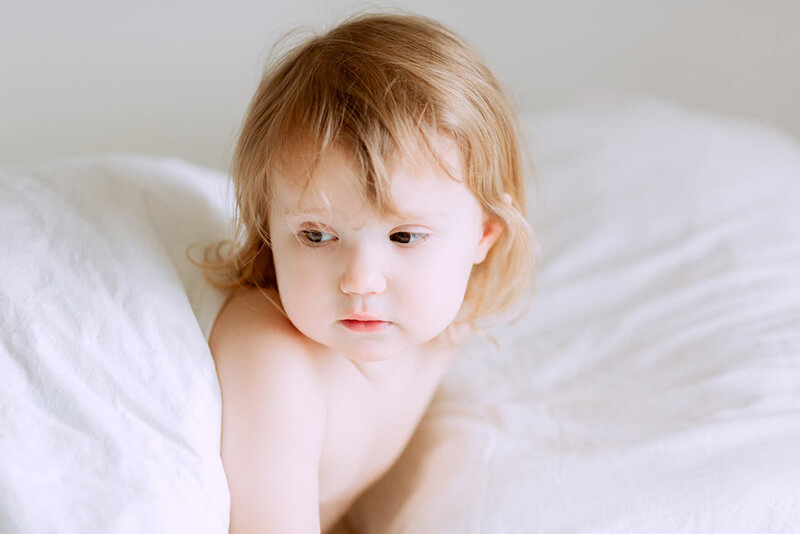
Allergies in babies are an increasing problem, raising numerous questions and anxieties among parents. However, the quest to lower your baby's allergy risk does not have to be difficult. Parents can dramatically reduce their newborns' chances of having allergies by taking informed and proactive efforts.
From the natural benefits of nursing to the significance of a clean home environment, these actions are designed to promote your baby's health from the start.
Breastfeed If Possible
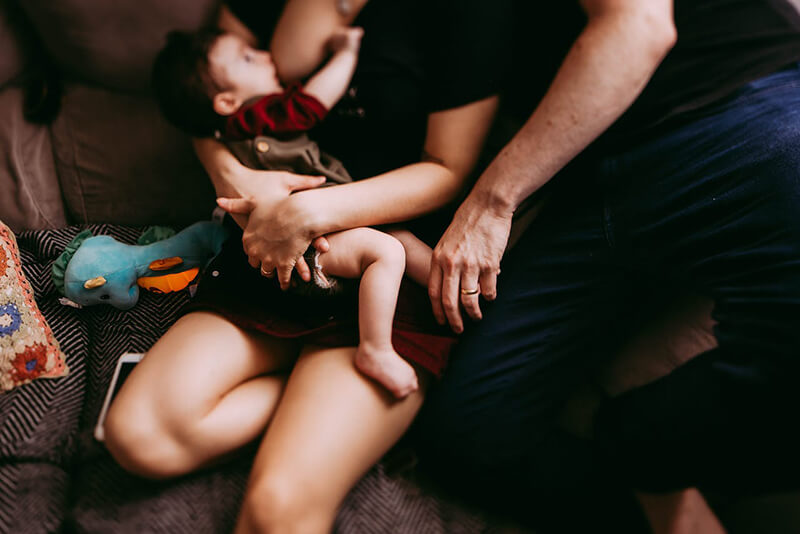
Breastfeeding can be an emotional roller coaster; it's both difficult and gratifying. Many people describe their journey as one of love, dedication, and, at times, pure resolve. Breastfeeding is much more than simply sustenance; it's a unique period when you literally nurture your kid with your entire being. Breast milk is thought to help boost your baby's immune system and maybe lessen the chance of allergies. This golden nectar contains antibodies and helpful chemicals that are not found in the formula.
While not all mothers can breastfeed, which is absolutely fine, if you can, it is a great gift for your kid. It's a natural method to fortify their small bodies against the huge world out there, and a great bonding opportunity.
Introduce Allergenic Foods Early
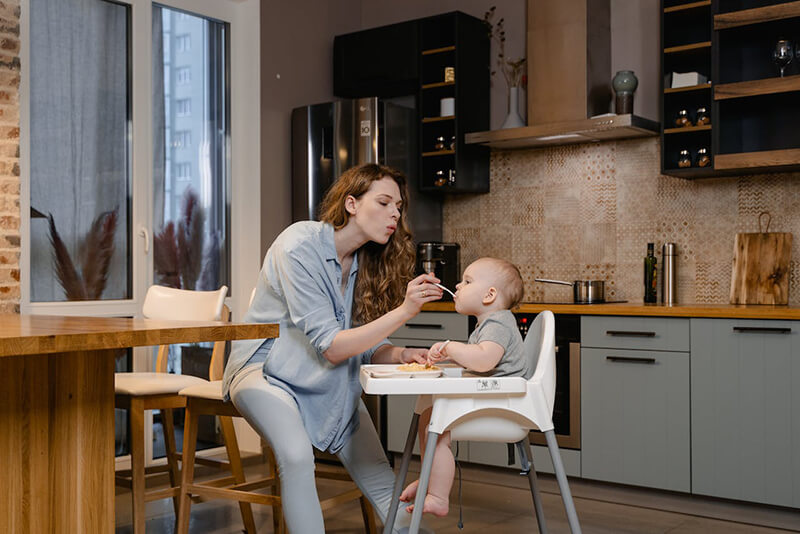
The idea of introducing allergenic foods at six months of age or earlier has garnered a lot of popularity in recent years. It must seem overwhelming at first to think about giving your infant potentially allergic foods like dairy, eggs, or peanuts. On the other hand, studies indicate that early exposure can dramatically lower the likelihood of acquiring dietary sensitivities. The key is to start with small quantities and watch for any reactions.
This strategy can be used as a preventative precaution as well as a means of promoting a healthy, diversified diet in children from an early age. Instead of fighting certain meals, the goal is to teach the immune system to detect and tolerate them. Keep in mind that every infant is different, so talk to your pediatrician about this. And if they agree, including this step in your weaning process can result in great anti-allergenic benefits in the future.
Regular Air Checks
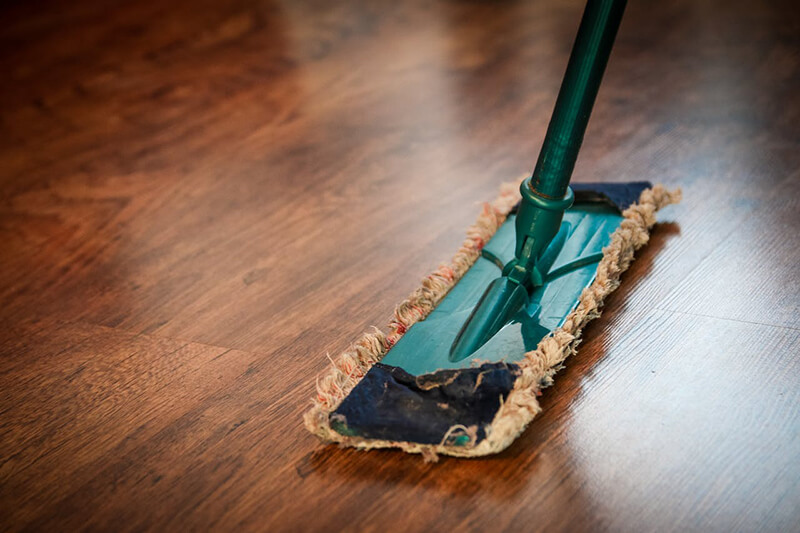
Dust, pet dander, and mold are common allergens that can develop in homes and trigger allergies. Regular cleaning of all the surfaces is necessary, but as it turns out, you mustn’t neglect your air quality and air conditioning system. An air conditioner does more than just cool the air; it also filters out dust and other irritants. As a result, keeping it in good repair is critical.
This includes regular air conditioning repair service visits to ensure it functions efficiently and effectively filters the air. A clean and operating air conditioner can make a major difference in keeping your baby's environment allergen-free, thereby improving their general health and well-being.
Limit Exposure to Smoke and Pollution
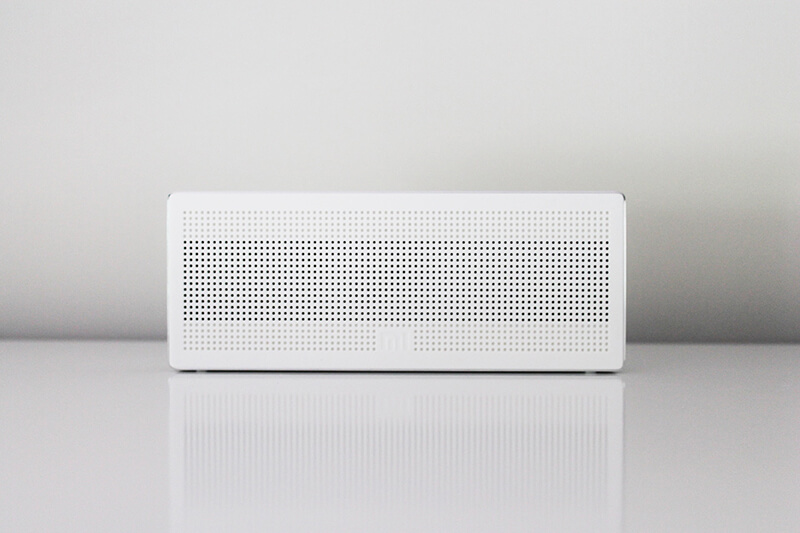
Creating a bubble of clean air for our little ones in a world rife with smoke and pollution is a daunting, yet vital task. Every puff of cigarette smoke is a cocktail of toxins, and for a baby, even a whiff can be harmful. It's not just about the immediate irritation; these pollutants can have long-term effects on your baby's developing lungs and increase their susceptibility to allergies. Similarly, outdoor pollution, with its myriad of contaminants, poses a silent threat.
To safeguard our children, ensuring a smoke-free home is crucial. On days when the air quality is poor, we must keep our babies indoors. Investing in an air purifier can also be a sensible decision, since it contributes to a safer, cleaner atmosphere in which our babies can breathe easier and grow better.
Consider Probiotics
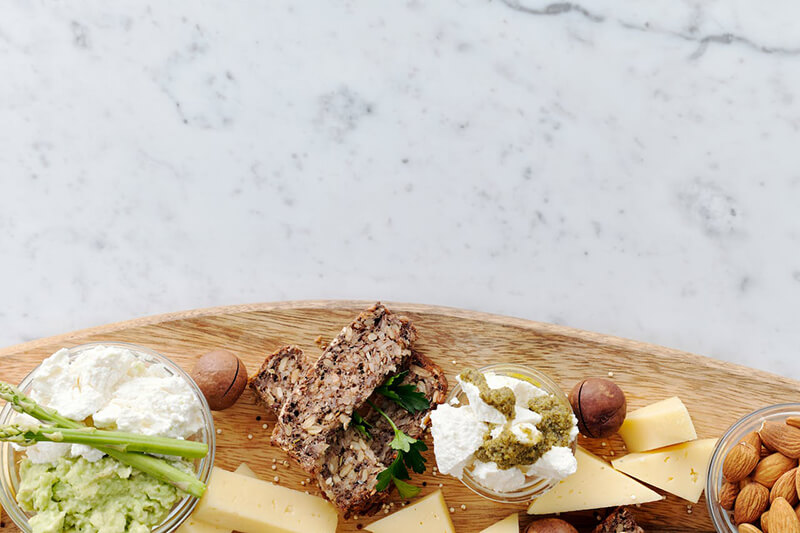
Every day there’s more and more research about how probiotics can help infants reduce allergies. Probiotics are beneficial bacteria that can help the child develop strong gut with a robust variety of microbiotics. An immune system that functions well depends on a healthy gut, which can lower the risk of allergies.
Probiotics can be added to your baby's diet in two ways: through supplements (after speaking with your pediatrician) or probiotic-rich foods (appropriate for older babies). Of course, with consultation with your doctor, you can see whether this is something suitable for your little one. It can be a good idea to try out, because side-effects are truly minimal.
Each step discussed offers a unique contribution towards creating a safer and healthier environment for your child. While the landscape of parenting is ever-changing and often unpredictable, adopting these practices can provide a sense of control and reassurance. Remember, the goal isn't perfection, but rather, taking informed, practical steps towards minimizing allergy risks. It's about making choices each day that add up to a big difference in your baby's life. As parents, our greatest triumph lies in seeing our children grow up healthy and happy, and these steps are a stride in that direction.
ABOUT OUR CONTRIBUTOR:
Sophia Smith is a lifestyle blogger, graphic designer and DIY enthusiast. She is very passionate about eco-friendly and green topics, sustainable fashion, eco beauty, and conscious business. Sophia's other hobbies centre around her love for yoga, wellness rituals and living in balance with nature. She loves sharing meaningful content that inspires people and has covered topics ranging from organic products and sustainability to self-care and mental health. Sophia has contributed to a number of publications including Your Zen Mama, Eco Warrior Princess, Sivana Spirit, Urban Naturale, Carousel, Cause Artist, Awaken, Literally Darling, and Read Unwritten.
You can find out more about her writing by following her on Twitter (@sophia_bri).
